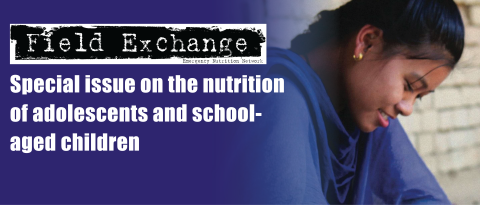New UNICEF resource: Programming Guidance for Parenting of Adolescents
Skeen, S, Levy, M, Haj-Ahmad, J (2021) Programming Guidance for Parenting of Adolescents. UNICEF. Available: https://www.unicef.org/reports/parenting-adolescents.
Parents play an essential role in influencing how adolescents interact with the complex, interlinked factors that shape their development. Not only do positive parental relationships enhance developmental outcomes for adolescents but effective parenting can also alleviate the impact of negative external factors. The influence of parenting practices can also extend across generations. Building on parents’ existing strengths and equipping them to provide support to their adolescent children through a parenting programming has the potential to have a profound positive influence on adolescent development.
UNICEF’s Programming Guidance for Parenting of Adolescents (2021) aims to guide global efforts to strengthen evidence-based, holistic programming for the parenting of adolescents. The guidance is targeted at practitioners and stakeholders working on responses to support the parenting and caregiving of adolescents across sectors. It presents a series of recommended considerations and core content areas for parenting of adolescent programmes as informed by a comprehensive review of the existing evidence base.
In terms of key considerations, parenting programmes of adolescents should:
- Use a strengths-based approach that recognises parents’ existing skills and experience and in turn supports them to nurture the strengths of their adolescents
- Promote gender-equitable norms and reduce exposure to gender-specific risks
- Promote adolescents’ safe and meaningful participation within their families and communities according to their evolving capacities
- Be inclusive of all parents including the most marginalised
- Rely on the sizeable existing knowledge base on the parenting of adolescents
Depending on the aims and the target audience, programmes for the parenting of adolescents would ideally contain core content to:
- Promote loving, warm and affectionate relationships between parents and their adolescent children using age-appropriate strategies to promote adolescent wellbeing
- Improve parents’ knowledge of adolescent physiological, cognitive, social and emotional development to enable them to meet their adolescent children’s needs more effectively
- Develop parents’ skills to communicate respectfully with adolescents in a manner that respects their evolving capacities
- Support parents to employ positive, non-violent discipline techniques that communicate expectations and set parameters around adolescents’ behaviour
- Empower parents to create safe environments by reducing exposure to risks and to assist their adolescent children to access support services
- Support parents to provide for adolescents’ basic needs, such as through the inclusion of parenting programmes in social protection schemes that support families living in poverty, while taking account of adolescents’ growing decision-making roles in the household
- Protect and promote parental mental health and link them with further care as required
The guidance further outlines how to plan for scale-up and sustainability from the initial stages of development to ensure the extended reach and lasting impact of the parenting of adolescents programming. It describes how to develop strong monitoring and evaluation systems that are essential to support and inform programme implementation. Finally, the resource offers a nine-step process to set out the specific activities required to design, deliver and evaluate parenting programmes of adolescents and to plan for future scale-up.
UNICEF is currently developing detailed messaging and implementation resources, based on the key considerations and core content outlined in the guidance, for implementing holistic parenting of adolescents’ resources (expected early 2022). The guidance is currently available in English and Spanish.


